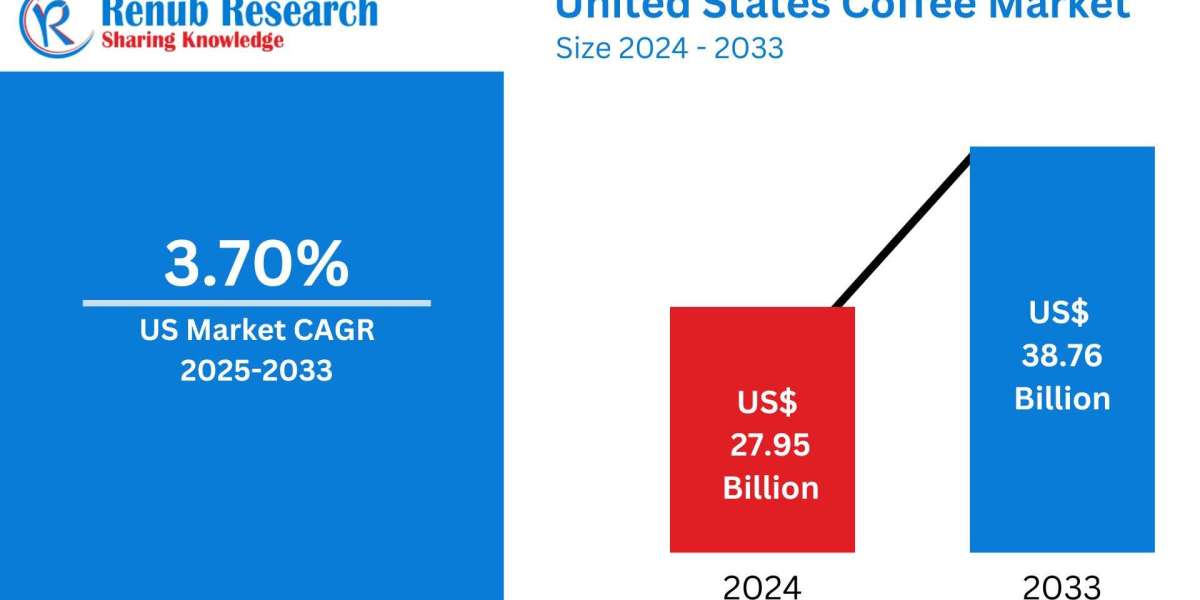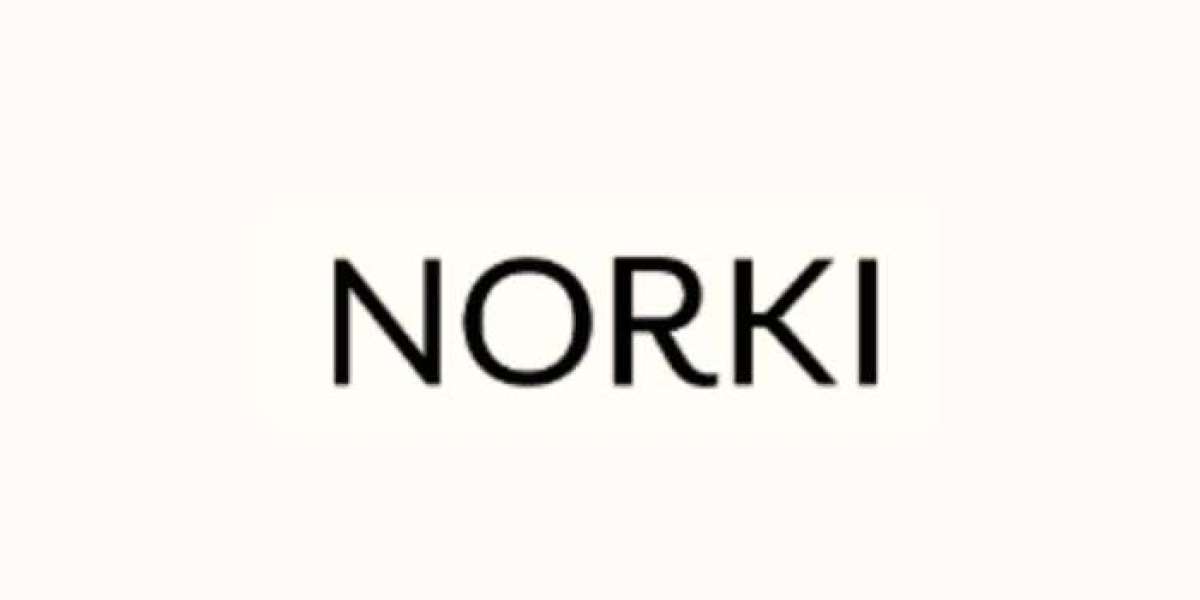United States Coffee Market Report: Size, Trends, and Forecast (2025-2033)
Introduction
The United States coffee market is set to experience significant growth, with its market size projected to reach US$ 38.76 billion by 2033 from US$ 27.95 billion in 2024, growing at a CAGR of 3.70% from 2025 to 2033. The rising demand for specialty coffee, premium and organic blends, and an expanding café culture are key factors driving the market. Furthermore, advancements in ready-to-drink (RTD) coffee and green coffee products have contributed to market expansion.
Market Segmentation
By Product Type
- Whole Bean
- Ground Coffee
- Instant Coffee
- Coffee Pods and Capsules
By Distribution Channel
- Supermarkets/Hypermarkets
- Convenience/Grocery Stores
- Online Retail
- Other Distribution Channels
Market Outlook
Coffee is a staple beverage in the United States, enjoyed for its rich aroma, strong flavor, and caffeine content. The U.S. remains one of the largest consumers of coffee globally, with increasing preferences for high-quality and ethically sourced coffee. The surge in specialty coffee, organic varieties, and single-origin blends reflects changing consumer tastes. The dominance of Starbucks, Dunkin’, and independent specialty coffeehouses further fuels the dynamic coffee culture in the country.
Growth Drivers in the U.S. Coffee Market
- Rising Demand for Specialty and Premium Coffee
Consumers are increasingly opting for single-origin, organic, and ethically sourced coffee, boosting the specialty coffee segment. The trend toward third-wave coffee culture, which emphasizes sustainability and traceability, has led brands to invest in innovative blends and specialty roasting techniques.
- Example: In October 2024, Minneapolis-based Peace Coffee launched an Organic and Fair-Trade Premium Concentrate for cold espresso beverages.
- Expansion of Ready-to-Drink (RTD) and Cold Brew Coffee
The demand for RTD coffee and cold brew products is rising due to busy lifestyles and a preference for convenient beverages. Consumers favor canned cold brews and bottled lattes, particularly those with low-sugar, plant-based, and functional ingredients.
- Example: In September 2024, Nestlé’s Nespresso introduced its first RTD coffee offering, the Master Origins Colombia Coffee, exclusively in the U.S.
- Growth of E-Commerce and Online Coffee Sales
The digitalization of retail has transformed coffee consumption, with online platforms offering subscription services and customized coffee experiences. Direct-to-consumer (DTC) brands are gaining popularity by providing freshly roasted coffee beans, brewing equipment, and personalized recommendations.
- Example: In March 2024, Nguyen Coffee Supply partnered with Gopuff to expand its delivery services across the U.S.
Challenges in the U.S. Coffee Market
- Coffee Bean Price Volatility and Supply Chain Disruptions
The market faces supply chain instability due to factors like climate change, geopolitical tensions, and rising transportation costs. Coffee-producing nations such as Brazil, Colombia, and Vietnam experience production challenges, leading to fluctuating coffee prices.
- Competition from Alternative Beverages
The rise of health-focused beverages such as matcha, herbal teas, kombucha, and nootropic drinks poses a challenge to traditional coffee. To remain competitive, coffee brands are innovating with functional coffee products, including those infused with vitamins, probiotics, and plant-based ingredients.
Key Market Segments
United States Whole Bean Coffee Market
Whole bean coffee remains a favorite among coffee connoisseurs, particularly those who prefer home brewing. Specialty roasters offer single-origin and organic whole-bean varieties, catering to high-end consumers.
- Example: In February 2024, Cherry Coffee expanded into wholesale after acquiring Novel Coffee Roasters in Dallas.
United States Instant Coffee Market
Premium and specialty brands are revolutionizing the instant coffee industry by introducing high-end freeze-dried varieties. This segment attracts busy professionals and health-conscious consumers.
- Example: In October 2024, Civilized Coffee launched Instant Mocha Powders, offering a quick and high-quality café experience at home.
United States Supermarkets/Hypermarkets Coffee Market
Supermarkets and hypermarkets remain key distribution channels, offering a diverse range of coffee brands at various price points. Private-label coffee brands are also gaining traction in major retail chains like Walmart, Costco, and Kroger.
United States Online Retail Coffee Market
The online coffee market continues to expand due to subscription services, exclusive blends, and doorstep delivery options. Companies are leveraging social media marketing, influencer collaborations, and AI-driven recommendations to boost sales.
Related Report
Europe Ready to Drink Coffee Market
United Arab Emirates Ready Drink Tea and Coffee Market
Kenya Ready Drink Tea and Coffee Market
Key Players in the U.S. Coffee Market
The competitive landscape includes global giants and niche specialty brands. Leading companies are investing in product innovation, sustainability, and premiumization to maintain market dominance.
Major Players:
- Nestlé S.A.
- Eight O' Clock Coffee Company
- Kraft Heinz Co.
- The J.M. Smucker Co.
- Fresh Roasted Coffee LLC
- Keurig Dr Pepper Inc.
- White Wave Food Co.
- Monster Beverage Corporation
- Califia Farms LLC
- Starbucks Corporation
Market Forecast and Future Trends (2025-2033)
The U.S. coffee market is expected to continue its steady growth trajectory, driven by:
- Innovations in RTD and functional coffee products
- Sustainability and ethical sourcing trends
- Expanding online retail and subscription-based coffee services
- Technological advancements in coffee roasting and brewing methods
Conclusion
The United States coffee market is dynamic and evolving, with consumer preferences shifting toward specialty, organic, and convenient coffee solutions. Companies that embrace sustainability, digitalization, and innovation will thrive in this competitive landscape. As coffee culture continues to grow, brands must adapt to changing consumer demands while maintaining quality and affordability.
For more details, contact our analysts or request a customized report tailored to your business needs.
Contact Information:
USA: +1-678-302-0700 | India: +91-120-421-9822
Email: info@renub.com
Website: Renub Research



